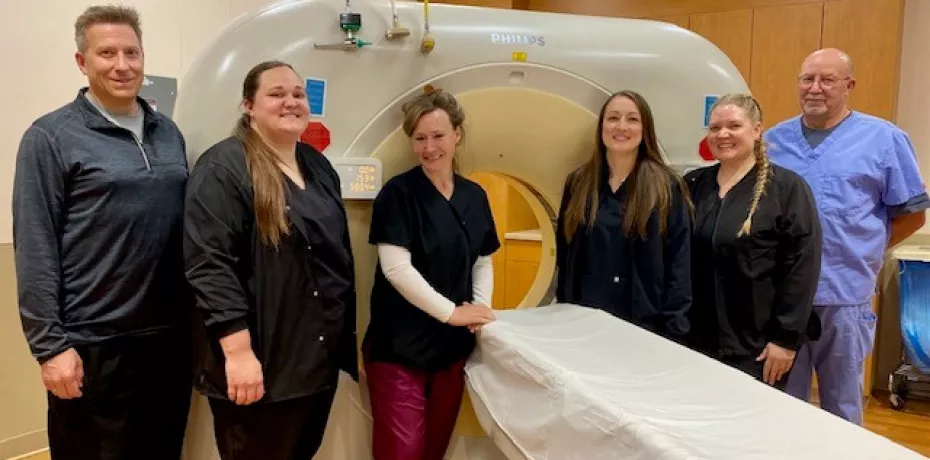
Location
Get in touch
Call: 308-630-1140
Login to MyChartWhat is a CT Scan?
Computed tomography (CT or CAT) scans are a type of imaging technology that uses X-rays and computers to create cross-sectional “slices,” or images of the body. These images provide detailed information about the anatomy at each location, or slice. CT scans can image bones, soft tissue, brain, organs, and blood vessels.
CT scans can help diagnose:
- Heart disease
- Tumors
- Bone fractures
- Joint diseases
- Internal injuries and bleeding
- Blood clots or excess fluid
- Infections
Regional West is proud to provide CT calcium score exams to help detect calcifying plaque buildup in the heart’s arteries. This plaque buildup leads to coronary artery disease, heart attack, and stroke. Patients who are 45 years or older with a healthy heart rate under 100 beats per minute can ask their physicians or providers for a referral for this exam. Insurance plans typically don't cover this screening, but Regional West Imaging Services offers this self-pay exam for $150. This cost includes the exam plus a professional read by a radiologist. Results are sent to the primary physician or provider.
Although CT exposes patients to ionizing radiation, Regional West’s radiologists and technologists work closely so that each CT exam is done using the lowest possible radiation dose, especially for children.
CT exams are scheduled for outpatients from 7 a.m. to 4:30 p.m. Monday through Friday. Your primary care physician or provider must refer you for a scheduled CT exam. CT is available for inpatients and emergency patients at all times. Note that many insurance companies now require a pre-authorization before they will cover an outpatient CT exam. Patients are advised to contact their insurance company ahead of time to confirm coverage.
What to expect during a CT exam
During a CT exam, you will lie on a table that passes through the center of the scanner. As the part of the body being examined passes through the opening, the X-ray tube circles around the patient. Detectors collect the X-rays that have come through you and pass the information along to the computers, which then construct images from the data. Hundreds of images may be processed during a CT exam and are stored digitally. Most CT exams take 30 minutes or less.
Some types of CT exams require the use of contrast. You may be asked to drink a special liquid before your exam, or contrast may be injected into a vein through an IV during the exam. Contrast helps to identify specific structures and functions within the body. The type of exam ordered will determine whether contrast is necessary. Patients may be asked to change into hospital pajamas for some types of CT exams.
During the exam, a registered radiologic technologist will care for you. This technologist is specially certified in CT imaging by the American Registry of Radiologic Technologists (ARRT). The technologist will assist you into the correct position, plan the scan, and operate the equipment. A tech aide will assist the technologist and help with paperwork, deliver the contrast to drink, set up the room, and help you through the exam.
A board certified radiologist examines the completed images and sends the report directly to your physician or provider, who will then contact you with the results.